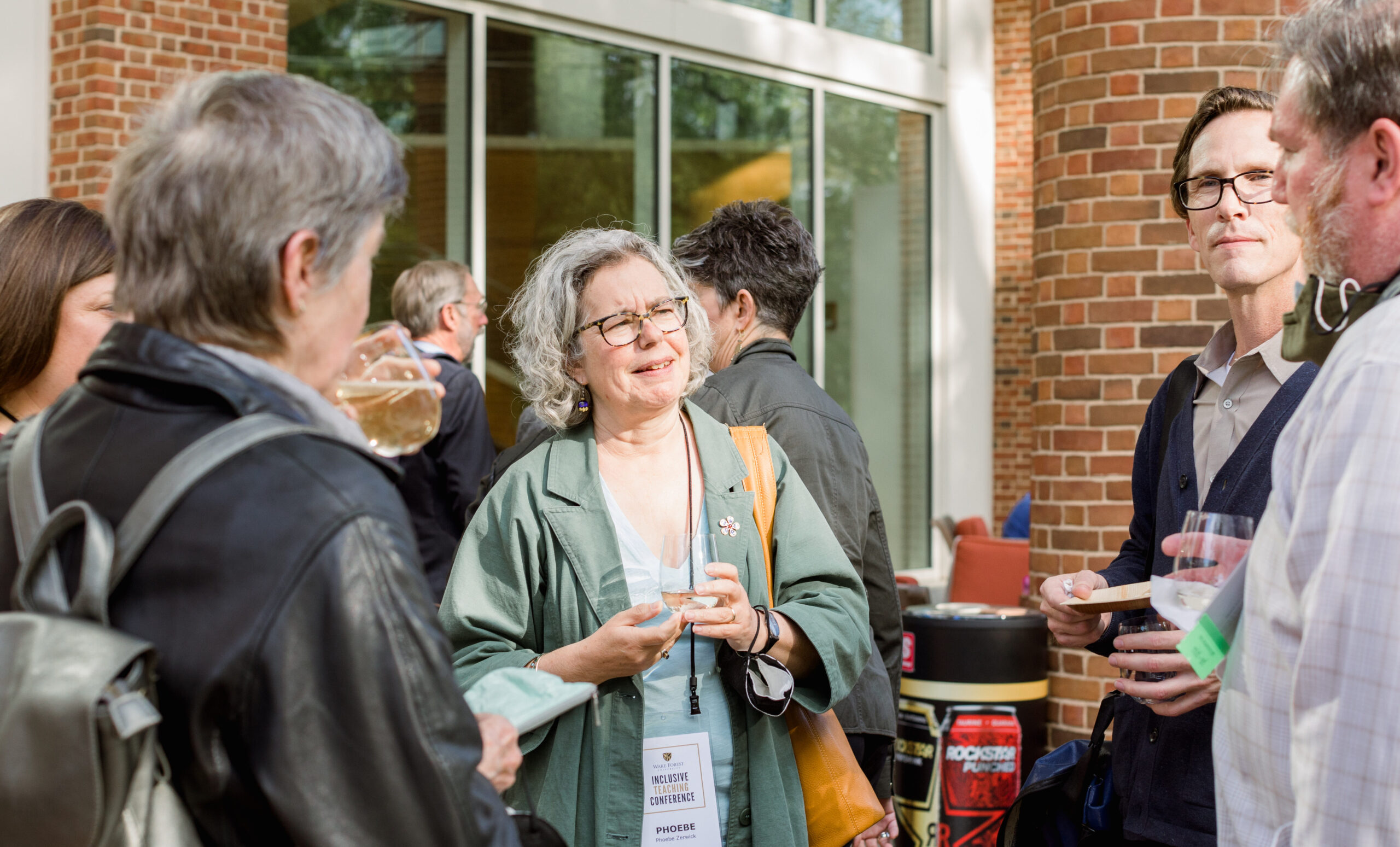Learning Communities

Overview
As funding allows, the CAT regularly conducts faculty learning communities. These communities bring together a group of 8-12 faculty members around a specific topic. Past communities focused on topics such as course design, curriculum assessment, eportfolios, study abroad, and language learning. Please be aware that we can only accept applicants into one learning community at a time, so If more than one learning community interests you we ask that you apply for the one that you think will best fit your goals and needs.
New Faculty Learning Communities
The Center for the Advancement of Teaching facilitates two learning communities for new faculty each year (one for permanent faculty and one for contingent faculty). Each year-long NFLC is intended to support our colleagues who are new to the Wake Forest community. New faculty members in their first or second year at WFU are encouraged to apply (full-time, permanent faculty are invited to apply for the permanent group; visiting, postdoc, and adjunct faculty are invited to apply for the contingent group).
The program is designed to help you connect with the WFU community and also enhance your efficacy around your role as a new faculty member, with a strong emphasis on teaching. You will be supported in your efforts to establish community, networks, and connections across the WFU community; explore evidence-based practices to enhance your teaching; and engage in observations of your peers’ teaching and reflective activities.
Participants will meet approximately every other week throughout the year with optional networking and social opportunities. Regular attendance at these gatherings is expected for all cohort members. To support this work, each participant will receive a $500 stipend and book.
The goals of the new faculty learning community are to:
- connect you with the WFU community, other new faculty, and the CAT as a support resource for your teaching.
- enable you to establish a cross-disciplinary, cross-institutional network across the WFU campus.
- encourage you to explore and adopt evidence-based practices that you feel will enhance student learning in your classes.
To fulfill the NFLC requirements and receive the $500 stipend, you are expected to:
- attend all scheduled meetings of the learning community (effort will be made to schedule meetings in alignment with participant schedules). The NFLC is expected to meet every other week each semester.
- observe and debrief at least two of your colleagues’ classes.
- submit guided reflective activities throughout the program.
Applications for the 2025-2026 Academic Year are currently closed.
Past Learning Communities
- Rethinking Grading at Wake Forest (AY 2024-25)
- Peer-to-Peer AI Seminar Series (Summer – Fall 2024)
- Pedagogy for Equity & Inclusion Faculty Learning Community (AY 2023-24)
- Peer-to-Peer Faculty Learning Community Initiative (Summer 2020)
- Course (Re)Design Faculty Learning Community (Spring 2015, Summer 2016, Summer 2017, Summer 2018, Summer 2019)
- First-Year Course Advising Faculty Learning Community (Fall 2019)
- Curriculum Design and Assessment Faculty Learning Community (AY 2019-20)
- First-Year Course Advising (Spring & Fall 2019)
- Language Program Evaluation (AY 2018-19)
- Technology & Multimedia Faculty Learning Community (Spring 2017)
- Course (Re)Design (Spring 2015, Summer 2016; Summer 2017; Summer 2018; Summer 2019)
- Blended Learning Faculty Learning Community (Fall 2015)
- Study Abroad Faculty Learning Community (AY 2013-14)
- Contemplative Pedagogy Faculty Learning Community (AY 2013-14; AY 2014-15; AY 2015-16)
- ePortfolio Faculty Learning Community (Fall 2012)
- New Faculty Learning Community (2011-present, annually)
